Best Selling Cars Around The Globe: China Settles Into Ivory Coast
Like I did for Libya and Yemen, it is my duty to keep you up-to-date on which cars are bought in the countries you are hearing about in the news.This is why this weekend we are going where the French special forces lately went: To the Ivory Coast, a very interesting, fast evolving market with French, Japanese and Chinese influences.
Now if crazy African driving scares you (they should film a Bourne Identity car chase in Africa – wait, they did! but it was in Morocco, so off-topic), fear not. There are 153 additional countries to explore in my blog. You will enjoy it as much as an elephant enjoys its mud baths. What? Forget it.
How big is the Ivory Coast car market? The most recent data I could get on Ivory Coast is for the first 6 months of 2010 when 3,380 new cars were sold in the country. This is 22 percent better than in 2009, and the full year figure was expected to hit 7,000 units for the first time since 1994, so a very healthy car market indeed. It’s about two days of Beijing auto sales while Beijing auto sales were good. More on China later.
As far as brands go, the only official ranking I managed to get my hands on is a Top 10 best selling car brands in the country for the first 6 months of 2010 and it looks like this:
PosBrand2010%1Toyota54416.1%2Hyundai51615.3%3Mitsubishi43212.8%4Nissan2226.6%5Kia2076.1%6Peugeot1885.6%7Isuzu1654.9%8Dacia1484.4%9Volkswagen1424.2%10Great Wall1293.8%There are no official model ranking data, but your faithful explorer (and his good friend YouTube) will set the Ivory Coast picture for you in no time.
The evolution of the car market in Ivory Coast over the years is fascinating, and is marked by 3 distinct phases:
Phase 1: Peugeot king of the savannah
Independent since 1960, the Republic of Cote d’Ivoire / Ivory Coast has nevertheless kept tight business relations with France. From the early sixties to the late eighties, the country was inundated by French cars, notably the Peugeot 404 and 504, available in all sorts of body shapes, the station wagon and pick-up versions being the most popular here.
The Peugeot 404, originally launched in 1960, stopped its European production in 1975 but lived on in Africa where it was produced until 1991 (in Kenya).
The Peugeot 504 for its part launched in 1968 and was sold in Europe until 1983, but production continued in Kenya until 2004 and in Nigeria until 2005.
The Ivory Coast was at the receiving end of these African-produced Peugeots and the models became extremely popular due to their robustness and easy maintenance. Nowadays a good third of cars in circulation in Ivory Coast are still these two Peugeot models, converted into invincible taxi-brousse (bush-taxis). A testimony to their excellent quality of production.
Now if you allow me I would like to vent on a pet-peeve of mine, being French, I feel some kind of weird emotional connection to French cars and especially Peugeots which was (until a few years ago when he switched to Audi – mmm interesting, I could write a whole article about that one) my dad’s favorite brand.
There are millions… ok thousands of stories in Ivory Coast and more generally in Africa of Peugeots in use for close to 50 years and with literally millions of miles under their wheels, but still valiant to this day. If these stories don’t build a brand I don’t know what does. So Peugeot has all this equity in its hands and has done absolutely nothing about it.
Instead, Toyota has managed to replace Peugeot in the hearts and minds of many African consumers and has become the ubiquitous brand around the world for quality of production and robustness.
I would have loved a solid Peugeot 4WD launched in the 80s to perpetrate the tradition and use as a proof that these cars are well built. Now French brands have to fight a poor quality perception outside of Europe – it is the case here in Australia where I live now.
In light of the next 2 phases the Ivory Coast car market I think you will agree there was a massive opportunity missed for Peugeot and other French brands in Africa, a market that seemed like a promised land for them a few decades ago.
Phase 2: Toyota and Asian 4WDs dominate
In the early nineties, the country’s roads started to degrade quite significantly and it became virtually impossible to travel without a 4WD. In the cities, passenger cars were still popular, but as a whole the country’s best sellers became 4WD’s. This is still valid nowadays. Enter all the usual suspects: the Toyota Hilux, Mitsubishi L200 and other Nissan hardbodies. These trucks and their rugged mates started to dominate the roads. I have estimated that the 3 models above should be the 3 current best sellers in the country, based on long hours spent watching YouTube videos of the streets of Abidjan – for the ones among you not yet familiar with my methodology.
You can check out the top 10 car brands at the start of the article and Toyota, Hyundai (with the Tucson), Mitsubishi, Nissan and Isuzu are all well placed, confirming my observations
Phase 3: China settles and flogs its low-cost 4WDs
The most recent trend in the Ivoirian car market is the shift towards low-cost 4WD’s. These are becoming a more and more relevant option for the Ivoirian buyer as these cars are now starting to be really well built. When we say low cost 4WD there is one country that comes to mind instantly and it’s China. As you will see when I cover countries like Egypt, Africa is at the moment the continent in the world where Chinese exports enjoy the greatest success. They had 8 percent of the Ivory Coast market in 2010.
Great Wall is already the 10th most successful brand in the country and the Great Wall Hover is a common sight on Ivory Coast’s roads. The brand has a few other 4WDs up its sleeve so it could become a really significant player in the country.
Another low-cost brand that produces a nice 4WD is Dacia, and reports in the Ivory Coast car industry confirm that the Dacia Duster has started with a bang there.
Now let’s stop for a minute and ponder.
Fast forward 15 years and most Great Wall ads around the world in 2025 boast of African users happily driving their Hover around the bush for millions of miles on end. “Great Wall – the most reliable brand on earth”.
Forgotten will be the crash-tests nightmares, Chinese brands will be competing with Toyota and Lexus in reliability studies and will have built their perception on the fantastic success they have enjoyed in the most inhospitable areas of Africa.
Not that far off….
Now to be an absolute expert of the Ivory Coast car market, you should also know that the most popular passenger cars there at the moment are the Toyota Yaris Sedan, Dacia Logan, Hyundai Accent and Peugeot 207. Traces of French cars and a bit of low cost to confirm all that was said above.
That’s all for today!
Source of Ivoirian sales figures and trends: www.educarriere.info, oulmahomet.hautetfort.com
Matt Gasnier, based in Sydney, Australia, runs a blog named Best Selling Cars, dedicated to counting cars all over the world.
More by Matt Gasnier
Latest Car Reviews
Read moreLatest Product Reviews
Read moreRecent Comments
- MaintenanceCosts I wish more vehicles in our market would be at or under 70" wide. Narrowness makes everything easier in the city.
- El scotto They should be supping with a very, very long spoon.
- El scotto [list=1][*]Please make an EV that's not butt-ugly. Not Jaguar gorgeous but Buick handsome will do.[/*][*] For all the golf cart dudes: A Tesla S in Plaid mode will be the fastest ride you'll ever take.[/*][*]We have actual EV owners posting on here. Just calmly stated facts and real world experience. This always seems to bring out those who would argue math.[/*][/list=1]For some people an EV will never do, too far out in the country, taking trips where an EV will need recharged, etc. If you own a home and can charge overnight an EV makes perfect sense. You're refueling while you're sleeping.My condo association is allowing owners to install chargers. You have to pay all of the owners of the parking spaces the new electric service will cross. Suggested fee is 100$ and the one getting a charger pays all the legal and filing fees. I held out for a bottle of 30 year old single malt.Perhaps high end apartments will feature reserved parking spaces with chargers in the future. Until then non home owners are relying on public charge and one of my neighbors is in IT and he charges at work. It's call a perk.I don't see company owned delivery vehicles that are EV's. The USPS and the smiley boxes should be the 1st to do this. Nor are any of our mega car dealerships doing this and but of course advertising this fact.I think a great many of the EV haters haven't came to the self-actualization that no one really cares what you drive. I can respect and appreciate what you drive but if I was pushed to answer, no I really don't care what you drive. Before everyone goes into umbrage over my last sentence, I still like cars. Especially yours.I have heated tiles in my bathroom and my kitchen. The two places you're most likely to be barefoot. An EV may fall into to the one less thing to mess with for many people.Macallan for those who were wondering.
- EBFlex The way things look in the next 5-10 years no. There are no breakthroughs in battery technology coming, the charging infrastructure is essentially nonexistent, and the price of entry is still way too high.As soon as an EV can meet the bar set by ICE in range, refueling times, and price it will take off.
- Jalop1991 Way to bury the lead. "Toyota to offer two EVs in the states"!




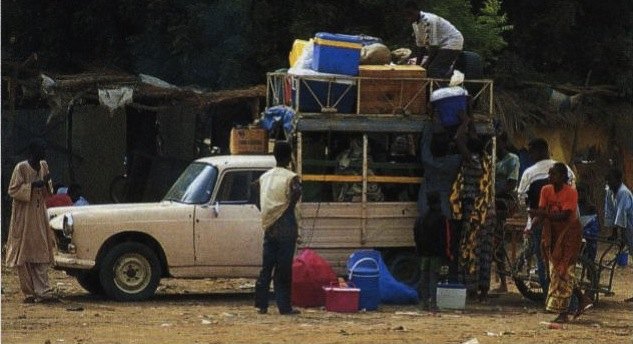




















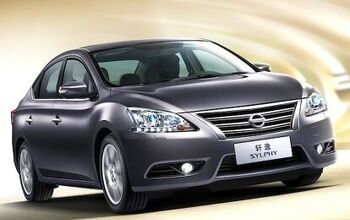
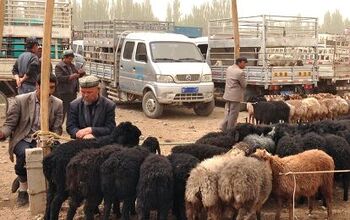
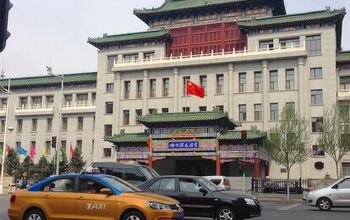
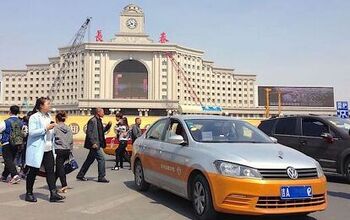
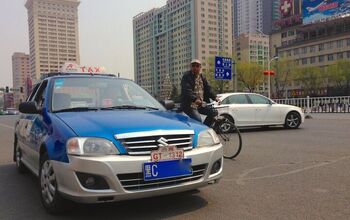



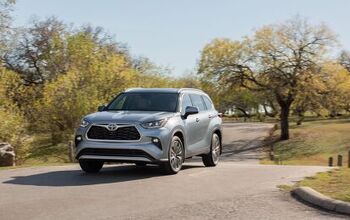






Comments
Join the conversation
Dacia Duster is better compared with what Great Wall can ever produce. Dacia has been doing cars since late 60s and there are times when they did it on their own, the ties with Renault being broken. And as an argument for Romanian automotive engineering I would add here a brand that is less known ARO
This post says it is written by Bertel.